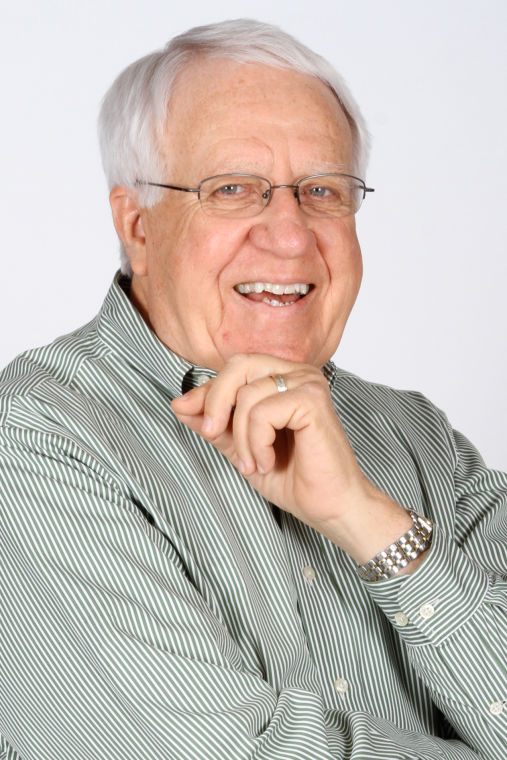
In 1845, poetess Elizabeth Barrett tried to count the ways she loved Robert Browning, her suitor and eventual husband. Her heralded message came through with clarity in her poem, “How Do I Love Thee?”
Recollection of her counting came to mind in recent days during my attempts to count the ways broadcast journalists have mangled the name “Uvalde,” where 21 persons were slain and multiple hearts shattered by a lone gunman who had lost his way.
Flipping around TV channels and tuning in for radio coverage, I remain amazed that so many recognized broadcast journalists—at both national and local levels—have mangled the pronunciation of “Uvalde.” I give up; their foul-ups are truly countless. Though their bunglings pale in the light of immense tragedy, they add another brick in the wall of “getting it right,” bowing to the questionable quest of “getting it first.”
In the spirit of extending due credit, NBC anchor Lester Holt appears to be one of few who has pronounced “Uvalde” correctly. Maybe his aides made phone calls to make sure, maybe he has kinfolk there or maybe he researched two of the community’s most recognized citizens—John Nance Garner and Dolph Briscoe, Jr.
Garner spent eight years as Vice President with President Franklin Delano Roosevelt (1933-1942). It was he who compared the vice presidency to a “bucket of warm spit.”
Briscoe, Governor of Texas 1973-1979, no doubt said lots of stuff, too, but perhaps none approached Garner’s frank assessment of the importance of his office.
Now, back to 2022 and pronunciations: First, persons new to Texas and/or unfamiliar with this community of 17,000 souls don’t need to wonder about how to say “Uvalde.” The first syllable, “U,” requires no further study. Just say “U,” with no emphasis on the letter. “Val” is the tripping syllable for many, who need only to remember how the three letters are pronounced in “valium, value or Valentine,” including major accent. The final two letters, “de,” don’t need to cause stumbling. The “d” needs no further explanation; the “e” in “Uvalde” should be treated like ending sounds of the words tidy, motley and soundly.
Butchered pronunciations include “U-VOL-dy, U-vol-DAY, U’-vol-dy” and perhaps the worst I heard: “Ooh-vol-dy.”
Wayda minute. “Ooh-Vol’-DAY” was the absolute worst I heard. Even during broadcasts in days following the tragic event, the town’s name continued to be “mangled.” Surely the talking heads could have listened to pleas of well-intentioned viewers and listeners who know better.
The late Dr. George Stokes, a member of the Baylor University faculty for more than three decades, is perhaps remembered most for authoring a book that needed to be written. Weary of radio and TV broadcasters’ frequent mispronunciation, he wrote a 1977 book entitled A Guide to the Pronunciation of Texas Towns.
He cited all 2,300 Texas towns and communities, some whose names were/are frequently trampled on. Think Waxahachie, Mexia, Marathon and 2,297 others. (How about Azle? It’s been called “Az-lee” by some newcomers. And is it “Hee-ko” or High-ko?” Or, “Chee-ko” or “Chy-ko?”)
Stokes’ book—still available from Amazon—should be a treasured resource in radio and TV newsrooms.
Remembered is a sign on the door of a bankrupt bookstore. It “humored-up” the sadness of closure, reading, “Words Failed Us.”
Words need not fail broadcast journalists, whose factual blunders sometimes occur. There are zero excuses, however, for mispronouncing datelines. (Admittedly, mere words are inadequate to describe the Uvalde massacre.)
Coming to mind is the story of two northeastern guys on a southwest bus tour.
Upon arrival in Lubbock, one said, “Loo’-bock, the first town’s name I’ve been able to pronounce since Alba-Q-Q.”
For persons who don’t cotton to book-reading, a fallback is the Texas Almanac Pronunciation Guide. The online source offers name pronunciations for some 2,100 Texas towns and cities. It requires a strong handle on diacritical markings and offers no accounting for 200 names lost since Stokes’ 1977 book.



